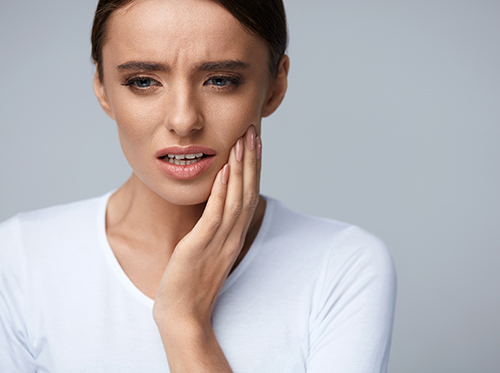Does Your Filling Need Replacing?
December 21st, 2022

No matter how wonderfully something works for us, there comes a day when a replacement might be necessary. This holds true whether it’s the latest and greatest smart phone, or your perfectly prescribed eyeglasses, or your discreet and comfortable dental filling.
Wait, dental filling?
It’s true! While most dental fillings will last for many trouble-free years, there might come a time when a replacement is in order. Here are some signs to look for:
- Obvious Damage
Your teeth are under a lot of stress. The forces of biting and chewing place hundreds of pounds of pressure on teeth and jaws. And if you grind your teeth, your teeth are really getting a workout. What’s true for your teeth is true for your fillings. Over time, fillings can break down after years of this constant pressure.
If you notice a filling has become loose, or is cracked, or is pulling way from the edges of the tooth, give your dentist a call! A timely replacement can prevent decay from forming under the filling. Which leads us to . . .
- Pain in a Filled Tooth
When a filling is damaged, it no longer protects the dentin and pulp inside the tooth as effectively.
Why? Because your toothbrush can’t reach beneath your filling—but cavity-causing bacteria can. This means that cavities can develop underneath a filling that’s loose or damaged. Hidden decay will eventually progress into the pulp area of the tooth, which could lead to infection, root canal treatment, or even extraction.
If you’re suffering from pain or sensitivity in or around a tooth, it’s important to see your dentist right away to rule out hidden decay or other serious conditions.
- Cosmetic Concerns
Composite resin fillings are often used on front teeth because they can be carefully color-matched to our enamel for an almost invisible restoration. Over time, though, you might discover your composite filling has become quite a bit more visible.
Just like our enamel, composite fillings can become stained over time from foods like coffee and red wine, and from smoking. Does a discolored filling need replacement? If the filling is damaged, or if decay is present, yes. If the problem is surface cosmetic staining, Dr. Sardzinski, Dr. Wilken, Dr. Stanley, Dr. Hanson and Dr. Heying might be able to restore the original color of your filling with polishing. If you’re concerned about the color of your filling, talk to us about all of your options.
- Your Dentist Recommends Replacement
Part of each dental examination includes checking the condition of your restorations. If we notice a loose or damaged filling, or find decay beneath a filling, it’s time for a replacement.
You have more options that ever before when it comes to dental fillings. Gold fillings and silver amalgam fillings last from ten to 15 years or even longer, and are capable of withstanding chewing pressure and filling larger cavities. Composite fillings, although they might not last quite as long, are almost unnoticeable and perfect for visible teeth. Your dentist will recommend the filling which is best suited for your needs.
If you wait to replace a cracked or compromised filling, you’re taking a chance with the health of your tooth. Dental fillings provide years of durable, comfortable wear—but if it’s time for a replacement, don’t hesitate to call our Hiawatha, IA dental office for an appointment.




